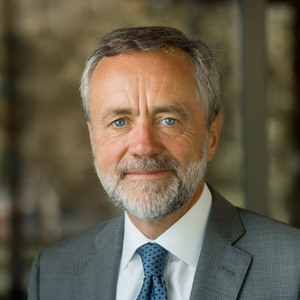A generation ago, back in the ’70s, Christian leaders like Bill Bright, Loren Cunningham and Francis Schaeffer were imagining a generation of college students who would consider ways to impact this nation, or any nation, with the gospel. And they envisioned students who would do so by thinking Christianly about and investing creatively in what they called the seven spheres of society.
These seven spheres are business, government, media, arts and entertainment, education, the family and religion.
Today, more than ever ‚ÄĒ or at least as much as ever ‚ÄĒ these spheres need the influence of Christians who have something to say and who are profoundly creative. We can have an impact. And increasingly I believe we are having an impact. It‚Äôs time to recommit ourselves in this generation to be thoughtful leaders in these seven spheres by doing what we have long done in societies and cultures, and that is being a faithful witness of the gospel.
Christian higher education needs to keep fanning these flames, coming alongside the local church and families. Despite pressures to cede our convictions, we in Christian higher education are part of a long continuum of the great and time-honored tradition of Christian thinking. We should not for one moment believe that the contribution we are making to this generation is any less than that of the great Christian thinkers of the past ‚ÄĒ from Clement of old to Augustine to G.K. Chesterton to C.S. Lewis to Dorothy Sayers.
At ļŕ›ģ ”∆Ķ, we have the calling not only to steward the sacred trust of Christian thought but also to pass these truths intact to the next generation, communicating in creative and winsome ways.
I am honored that Biola is among the many colleges and universities unashamed to be called Christ-centered and biblically faithful. I have watched as faculty live out their scholarly calling as a holy activity. I have observed as Christian scholars think deeply and articulate clearly about that which is of ultimate concern.
I have observed through professors’ respective disciplines how the biblical narrative is their foundation for truth.
True Christian scholarship does far more than give lip service to a theological statement. It does far more than model for students how to be humane and concerned for others. What I have seen in profound dimensions at Biola in particular and in Christian higher education in general is that these Christian scholars are collectively among this generation’s most powerful advocates of preserving and shaping the Christian intellectual tradition.
The Pew Forum on Religion and Public Life commissioned a survey in 2011 to 2,200 global evangelical leaders assessing the threats to the Christian movement worldwide. More than seven out of 10 of those leaders named secularism as the major threat to our faith. We need to counter this concern by raising a generation of Christians who are not only able to live out the faith but who are always ‚Äúprepared to give an answer to everyone who asks [them] to give the reason for the hope that [they] have,‚ÄĚ and to ‚Äúdo this with gentleness and respect‚ÄĚ (1 Pet. 3:15).
In God’s good providence, we are at a moment of history when our world needs thoughtful Christians who are grounded in the Christian faith unlike ever before. There has never been a more urgent moment for a renaissance of Christian intellectual communities to move forward and not back down in our advocacy for the intellectual life of the Christian and the thoughtful engagement in the world of ideas. If for one generation the cause of Christian higher education paused, I believe the ramifications would be devastating.
This past year we launched the first semester of our Templeton Foundation-funded ļŕ›ģ ”∆Ķ Center for Christian Thought, a forum where leading Christian thinkers from around the world gather to research and discuss issues of significance to the academy, the church and the broader culture. This coming semester, funded by the Fieldstead & Co. Foundation, we will launch another scholarly center, the Center for Christianity, Culture and the Arts. We believe at the core of Biola and through our new initiatives, we are becoming a gathering place for scholars to think Christianly about and invest creatively in the seven spheres of society. We desire to increasingly be a resource for thinking Christians to develop their ideas, refine their thinking and examine important cultural issues in a way that is informed by Scripture.
As Carl F. H. Henry challenged Christian colleges of the last century, we must take his cautions as seriously today. He lamented those colleges that began to veer away from a robust intellectual life. We need to develop in this rising generation the life of the mind, the ability to think critically, to write creatively, to speak articulately and to engage lovingly. And I believe we can do this without picking fights or always posturing from a position of what we’re against. The world may resist the thoughtful and credible case we have to make. But then again, our voice may persuade the skeptic of the Truth behind our words.
Barry H. Corey is the eighth president of ļŕ›ģ ”∆Ķ. Visit his office online at biola.edu/president, on and on .
 ļŕ›ģ ”∆Ķ
ļŕ›ģ ”∆Ķ
.jpg)

